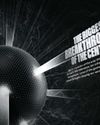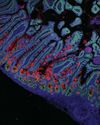
Being asked ‘how old are you?’ used to be a simple question to answer. If you weren't sure, you could always just count the candles on your birthday cake. The candles may no longer tell you the whole story, however. That’s according to a growing group of scientists who claim that you don’t just have a traditional chronological age, but also a potentially more fluid ‘biological age’. And that biological age could even be wound back… if you know how.
The excitement about this idea began around 2013, with the first DNA tests that could estimate your age to within a few years. The fact that a person’s DNA and chronological ages were usually slightly different raised a question: if the test deemed that you were older than your age in years, was that an error, or could it indicate something about how fast you’re ageing on a biological level?
A decade of intervening research has shown us that people with an older DNA age, known more correctly as an ‘epigenetic age’, do indeed seem to be older biologically, and so they tend to get ill and die sooner than others. It’s a scientific discovery that demonstrates what many of us have believed all along: people age at different rates. But what does this actually mean, both biologically and practically speaking?
Biologically, we now understand many of the underlying cellular and molecular processes that drive ageing, from damage to the proteins that keep our bodies working, to the ageing of cells themselves. It’s these changes – known collectively as the ‘hallmarks’ of ageing – that are behind wrinkles, grey hair, frailty, memory loss and diseases like cancer, heart disease and dementia, all of which become radically more likely as we get older.
This story is from the December 2023 edition of BBC Science Focus.
Start your 7-day Magzter GOLD free trial to access thousands of curated premium stories, and 9,000+ magazines and newspapers.
Already a subscriber ? Sign In
This story is from the December 2023 edition of BBC Science Focus.
Start your 7-day Magzter GOLD free trial to access thousands of curated premium stories, and 9,000+ magazines and newspapers.
Already a subscriber? Sign In

THE WORST IDEAS OF THE 21ST CENTURY
NOT ALL IDEAS CAN BE HITS. ALONGSIDE GROUND-BREAKING INNOVATIONS, 21ST-CENTURY SCIENTISTS HAVE HELMED THEIR SHARE OF WILD TECH FLOPS, DUBIOUS THEORIES AND OVERHYPED BREAKTHROUGHS. HERE ARE THE BIGGEST TO FORGET

10 IDEAS THAT WILL SHAPE YOUR NEXT 25 YEARS
Predicting the future is considered a fool's game. But it's one many of us like to play.

THE BIGGEST BREAKTHROUGHS OF THE CENTURY
We're a quarter of the way into the new century. To mark this milestone, we asked the UK's top minds to highlight some of the game-changing scientific breakthroughs shaping our world since the year 2000

DO THE SCIENCE COGNITIVE SHUFFLE
Trouble sleeping? A lot on your mind? Use this trick and sedate your synapses

WHAT DETERMINES HOW MANY ABS I CAN GET?
Assuming you're a human being, you have exactly the same number of abs as everybody else: two.

HOW CAN I IDENTIFY MY PSYCHOLOGICAL BLIND SPOT?
In the 1950s two American psychologists, Joseph Luft and Harrington Ingham, proposed a way of thinking about psychological blind spots - things you don't know about yourself - that they called the 'Johari Window' (the term is a combination of their first names).

How can I change my personality?
Want to become more confident, extroverted or assertive? Science shows that with a few simple changes, you can unlock your best self

Could your cosmetics be harming your health?
Cosmetic companies are phasing out microplastics and so-called 'forever chemicals' to help protect consumers.

extraterrestrial US Congress is talking about activity again. Is the truth really out there?
Despite several testimonies, the question remains frustratingly unanswered

Map of 100 million human body cells revealed
Over three dozen new studies mark significant milestone towards complete Human Cell Atlas